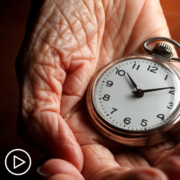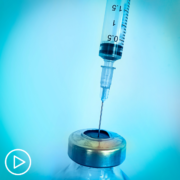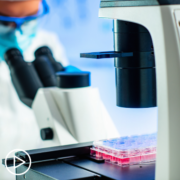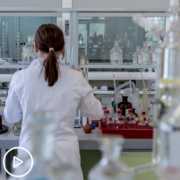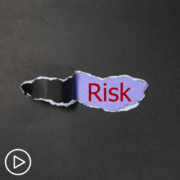Is It Aging or My CLL?
Is It Aging or My CLL? from Patient Empowerment Network on Vimeo.
How can chronic lymphocytic leukemia (CLL) patients tell the difference between treatment side effects and normal aging issues? Expert Dr. Ryan Jacobs explains his perspective when fatigue is the only issue for the patient versus patients having multiple symptoms.
Dr. Ryan Jacobs is a hematologist/oncologist specializing in Chronic Lymphocytic Leukemia from Levine Cancer Institute. Learn more about Dr. Jacobs.
Download Resource Guide | Descargar Guía en Español
Related Programs:

How Can I Ensure My CLL Doesn’t Progress to Richter’s Transformation? |
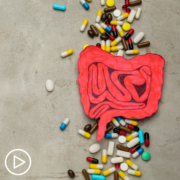
|

CLL Genetic Markers: What Should I Ask About Prognostic Factors? |
Transcript:
Lisa Hatfield:
A patient had asked, and I love this question because I often wonder myself when I get up in the morning, my bones are creaking and popping, “How do you know the difference between,” this patient’s talking about fatigue. How does a patient discern, “Well, this is fatigue from my cancer or my treatment,” versus just normal aging? Whether it’s fatigue or bruising or any side effect.
Dr. Ryan Jacobs:
Yeah. Fatigue is a really…I had an attending physician when I was in my training that said, “Treating fatigue makes me fatigued.” But it’s hard. If it’s really the only problem the CLL patient is having, it can be…all those other problems I had mentioned earlier, the low red cells, the low platelets, the painful nodes, the night sweats, I with close to 100 percent certainty know I can fix those with treatment.
Fatigue, I’m not as confident when that’s the only issue that a patient’s having. I try to differentiate between fatigue from other causes and old age, and specifically to CLL. They try to put it as a metric and say, if you’re having to spend half the day or more just lying around and you’re not able to do your normal activities of daily living, like that’s a severe level of fatigue and treatment should be considered. I’m looking for somewhat of a precipitous decline, not necessarily just kind of the gradual fatigue that you might more relate to aging.
The problem with treating fatigue is you’ll look, if you look at the possible side effects of all of these medicines I talked about, fatigue will be a potential side effect. So you’re sometimes trading one problem and getting another, or maybe the fatigue does get better, but then the patient has some different side effect that’s even worse than the fatigue. So it’s hard to really help when fatigue’s the only issue. But certainly, I have helped some patients with fatigue. We don’t have a test that we can do to know for sure is the fatigue coming from the cancer, or is it coming from something else.

